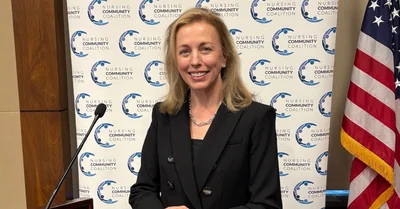Washington, D.C. - Several science organizations today soundly rejected the Trump administration’s attempt to force the Bureau of Land Management (BLM) to pretend, in a formal government document, that climate change is not a serious threat.
The appendix of BLM’s recently released environmental impact statement for the proposed oil and gas leasing program for the Arctic National Wildlife Refuge includes the following consciously misleading language:
The BLM does not agree that the proposed development is inconsistent with maintaining a livable planet (i.e., there is not a climate crisis). The planet was much warmer within the past 1,000 years, prior to the Little Ice Age, based on extensive archaeological evidence (such as farming in Greenland and vineyards in England). This warmth did not make the planet unlivable; rather, it was a time when societies prospered.
These well-known climate denial talking points have no scientific credibility, and have been repeatedly debunked by experts in both human and natural history.
“This is an admission of intellectual defeat," Chair Raúl M. Grijalva (D-Ariz.) said today. “The most we can expect from this administration at this point is repeating off-the-shelf climate denier rhetoric and treating reality like a disposal nuisance. There’s no better metaphor for how this president and his chief apologists view our country."
Science Organization Statements
The Archaeology Division of the American Anthropological Association posted a public letter objecting to BLM’s multiple falsehoods.
--
The Archaeology Division of the American Anthropological Association is writing this letter in response to the Bureau of Land Management’s (BLM) assessment on the oil and gas leasing program for the Arctic National Wildlife Refuge (ANWR), where they deny the existence of a climate crises in the appendix (pp. 562, 692, 693, 694). To make their point that such a crisis does not exist, they bring in the archaeological record, specifically the Medieval Warm Period. The Medieval Warm Period is a misnomer. While some areas of the globe were warmer and, for example, allowed grapes to grow in the United Kingdom, others experienced noticeable droughts (e.g., the western United States, southern Europe, the Middle East, parts of Africa, northern Mexico), cooling (e.g., northern Europe, eastern South Africa, etc.), or increased hurricane activity (e.g., Gulf Coast, Florida). Climate scientists use a more representative term-the Medieval Climate Anomaly (MCA). This term captures the variability in temperatures that were occurring during this time period.
The MCA anomaly was quite different from what is happening today; the MCA was caused by solar radiation, volcanic activity, etc. In contrast, much of today’s increasing global temperatures are caused by human activities in a world with its highest population size ever. Also, MCA ended. Today is another story unless we decrease greenhouse gases and other contaminants, and better regulate the use of finite resources. There is a climate crisis.
Finally, the BLM’s proposed actions to open up ecologically sensitive areas to oil and gas exploration are a direct threat to the health of American citizens. The continuing reliance on fossil fuels is a primary source of contaminants of the earth’s atmosphere, and is a major contributor to a global upsurge in respiratory ailments.
We encourage interested persons to read Climate Change in Human History: Prehistory to the Present by Benjamin Lieberman and Elizabeth Gordon (2018, Bloomsbury)
Sincerely and on behalf of the Archaeology Division,
Lisa J. Lucero
President, Archaeology Division, American Anthropological Association
Professor of Anthropology and Medieval Studies
University of Illinois at Urbana-Champaign
^^^
“The science is clear: the Fourth National Climate Assessment confirms that the impacts of climate change are already causing great harm to the American public and these harms will only worsen as heat-trapping emissions continue to rise. While humans have walked the planet, atmospheric carbon dioxide emission levels have never been as high as they are right now.
“The Bureau of Land Management’s statement is simply false and shockingly out-of-step with what mainstream science tells us. This is nothing more than a coordinated disinformation effort by the administration to deny the science, roll back climate policies, and actually drive up carbon emissions at a time when urgent cuts are needed. Continuing to call attention to cherry-picked data rather than address the growing crisis will only set us further behind. Young people and their allies today understand the grave implications of climate change; it’s past time the administration puts the interests of the public ahead of the profits of fossil fuel companies."
Brenda Ekwurzel
Director of Climate Science, Union of Concerned Scientists
^^^
“Archaeologists have scientific evidence that climate change has been incredibly disruptive in the past (causing migration of populations and political upheavals). Further, through their research in the field, archaeologists know that the damage being caused by current human-created climate change cannot be compared with prior dislocations."
Joe Watkins
President, Society for American Archaeology
^^^
“The Bureau of Land Management's statement that 'there is not a climate crisis' is contrary to the research and conclusions of the AGU community of Earth and space scientists. Peer-reviewed research has unequivocally concluded that climate change is real, occurring now, and is driven by human activity. The threat it poses to our human survival and the environment is real and serious. We need stakeholders from all sectors and backgrounds of society, including policy makers, to ensure that they rely on sound scientific research when making policy decisions and addressing climate change. Our society depends on it."
Chris McEntee
Executive Director and CEO, American Geophysical Union







